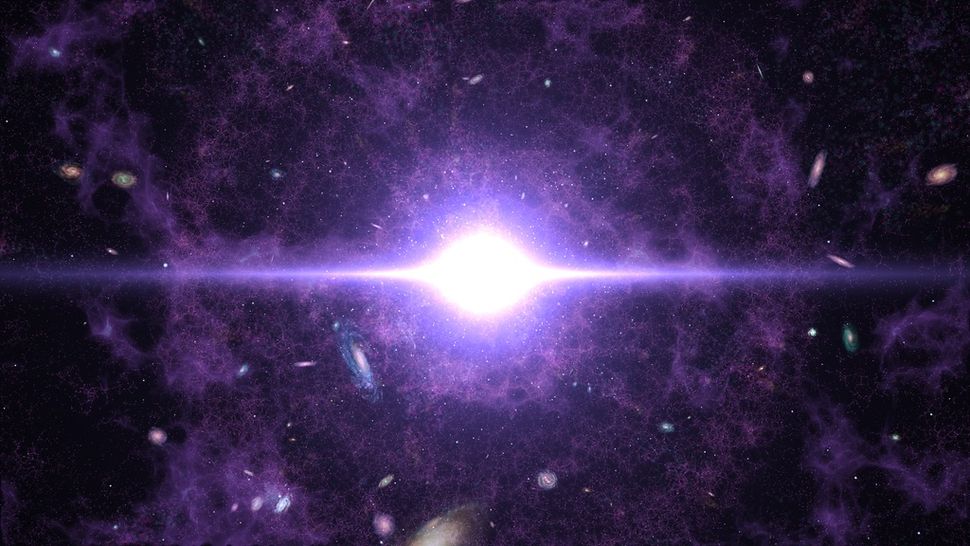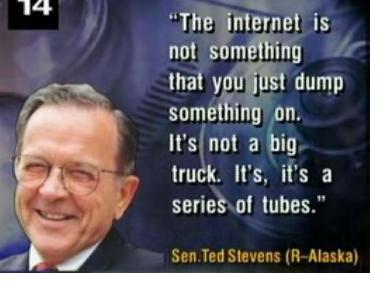Science
Related: About this forumWe May Finally Understand the Moments Before the Big Bang
By Tim Childers an hour ago

An artist's interpretation of the Big Bang.
(Image: © NASA's Goddard Space Flight Center/CI Lab)
There's a hole in the story of how our universe came to be. First, the universe inflated rapidly, like a balloon. Then, everything went boom.
But how those two periods are connected has eluded physicists. Now, a new study suggests a way to link the two epochs.
In the first period, the universe grew from an almost infinitely small point to nearly an octillion (that's a 1 followed by 27 zeros) times that in size in less than a trillionth of a second. This inflation period was followed by a more gradual, but violent, period of expansion we know as the Big Bang. During the Big Bang, an incredibly hot fireball of fundamental particles — such as protons, neutrons and electrons — expanded and cooled to form the atoms, stars and galaxies we see today.
The Big Bang theory, which describes cosmic inflation, remains the most widely supported explanation of how our universe began, yet scientists are still perplexed by how these wholly different periods of expansion are connected. To solve this cosmic conundrum, a team of researchers at Kenyon College, the Massachusetts Institute of Technology (MIT) and the Netherlands' Leiden University simulated the critical transition between cosmic inflation and the Big Bang — a period they call "reheating."
More:
https://www.space.com/physicists-model-reheating-universe.html
Kurt V.
(5,624 posts)abqtommy
(14,118 posts)goes through the big bang/expansion/ contraction/big bang cycle regularly. I know that Asimov was
a highly educated man because I think I only understood about half of this book of his.
rsdsharp
(11,874 posts)in chemistry, and later taught biochemistry at Boston University school of medicine.
He also spent three years at the Philadelphia Navy yard as a chemist, working with, among others, fellow science fiction writers Robert Heinlein and L. Sprague de Camp.
targetpractice
(4,919 posts)I love your curation of science stories for DU, and I assumed one day you would post the ultimate answer to Life, the Universe, and Everything!
Thank you!
Judi Lynn
(164,067 posts)I totally love finding them any time I can. It's similar to stumbling across them.
So glad for the chance to post them!
Thank you.
SonofDonald
(2,050 posts)I look at the stars and I feel so very small
But it's a great feeling
I may never know how and why we are here but my imagination runs wild just like it did as when I was a little boy
Look at the stars...
Judi Lynn
(164,067 posts)
Hard to imagine life before the "Series of Tubes."
It can seem so overwhelming.....
Thanks for your comments.
Javaman
(65,417 posts)Judi Lynn
(164,067 posts)muriel_volestrangler
(105,837 posts)"In the first period, the universe grew from an almost infinitely small point to nearly an octillion (that's a 1 followed by 27 zeros) times that in size in less than a trillionth of a second. This inflation period was followed by a more gradual, but violent, period of expansion we know as the Big Bang."
But, from, for instance, the American Heritage Dictionary of the English Language:
"cosmic inflation: The theory that the universe underwent a brief period of exponential expansion shortly after the Big Bang."
So which came first, cosmic inflation or the Big Bang?
Judi Lynn
(164,067 posts)SCantiGOP
(14,682 posts)and Neil Tyson said it was as good a brief, generic description as he had for the beginning of the universe:
Once upon a time, there was nothing. Suddenly, it exploded into everything.
Judi Lynn
(164,067 posts)targetpractice
(4,919 posts)I always understood it be that it was always everything, and then suddenly in the beginning it became much, much, much less dense.
Upon edit: There was no time before time began, and there was no nothing before anything. Hard to wrap my human mind around and type about it certainly. I'm not qualified.
